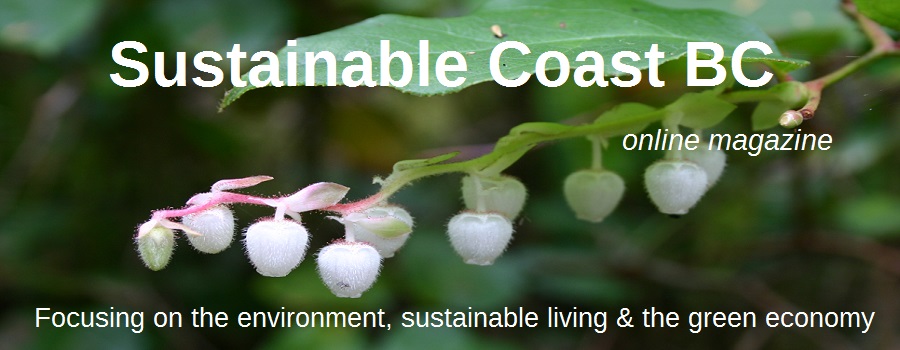News
The Zero Waste workshops of May 29 & 30 with Richard Anthony, participants passed a motion for local government, "Zero Waste Action". SuCESS technical advisor Loys Maingon created a Discussion Paper from the workshop presentations, "Market-based Zero Waste Strategic Plan".
Zero Waste Action motion
Full text of the motion follows. This motion was presented to Eric Graham (who attended the Pender Harbour workshop) to submit to the SCRD Board of Directors.
"Whereas, the Sunshine Coast Regional District has committed to the principles of Zero Waste as:"Producer responsibility at the front end of the problem: industrial production and design, Community responsibility at the back end of the problem: consumption, discard use and disposal and Political responsibility to bring both community and industrial responsibility together in a harmonious whole."
and the Zero Waste Alliance's definition of Zero Waste as:
"a goal that is ethical, economical, efficient and visionary, to guide people in changing their lifestyles and practices to emulate sustainable natural cycles, where all discarded materials are designed to become resources for others to use. Zero Waste means designing and managing products and processes to systematically avoid and eliminate the volume and toxicity of waste and materials, conserve and recover all resources, and not burn or bury them. Implementing Zero Waste will eliminate all discharges to land, water or air that are a threat to planetary, human, animal or plant health."
We, the Sunshine Coast community, urge our regional district board of directors adopt the following:
The Sunshine Coast Regional District will set a goal to achieve a Zero Waste goal of 90% diverson of waste from landfills or incineration by the year 2020 or sooner. The Regional District will follow the ZWIA (Zero Waste International Alliance) Principles of producer responsibility, consumer responsibility and political responsibility and the 14 Practical Steps towards a market-based Zero Waste strategy which includes establishing benchmarks, setting a timeline for action and engaging the community.
The 14 Practical Steps to a market-based Zero Waste strategy are:
- Adopt the Zero Waste definition.
- Establish benchmarks and a timeline.
- Engage the whole community.
- Demand decision makers manage resources not waste.
- Educate and train Resource Managers, Develop programs, Create green jobs and Enforce environmental rules.
- Educate residents, businesses and visitors.
- Perform Zero Waste Assessments.
- Build Residual Separation and Research Facilities.
- Develop New Rules and Incentives to move towards Zero Waste.
- Enact Extended Producer Responsibility (EPR) Rules.
- Remove government subsidies for wasting.
- Support Zero Waste Procurement.
- Expand Zero Waste Infrastructure.
- Challenge Businesses to lead the way to Zero Waste."
SuCESS discussion paper
Market-based Zero Waste Strategic Plan
This document is a summation of basic concepts and ideas set forth in the May 29th and 30th Public Sustainability Workshops held in Gibsons and Pender Harbour, and the Strategic Plan Meeting held by SuCESS directors on May 31. You can download and view this 13-page document in pdf. Your feedback and comments are welcomed!
